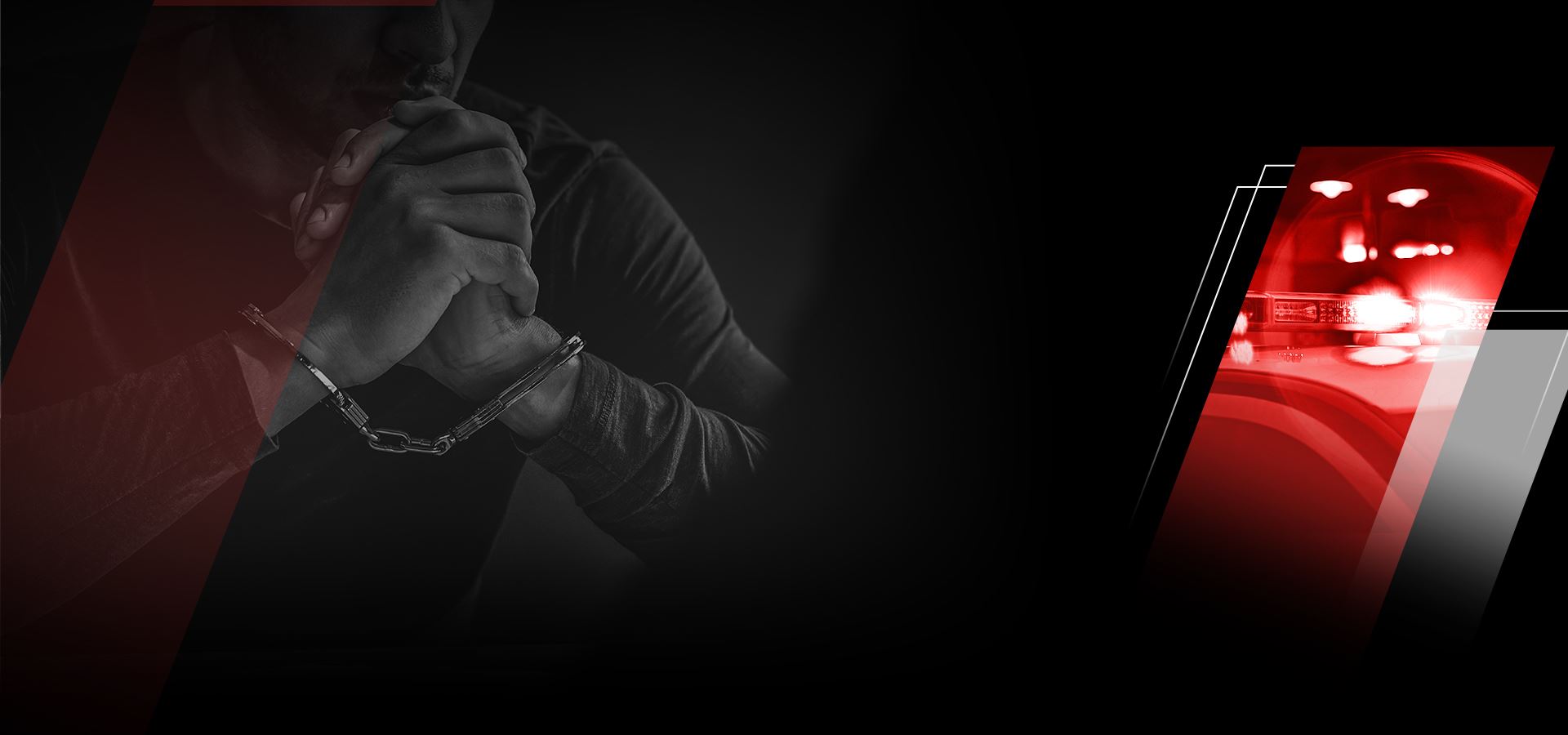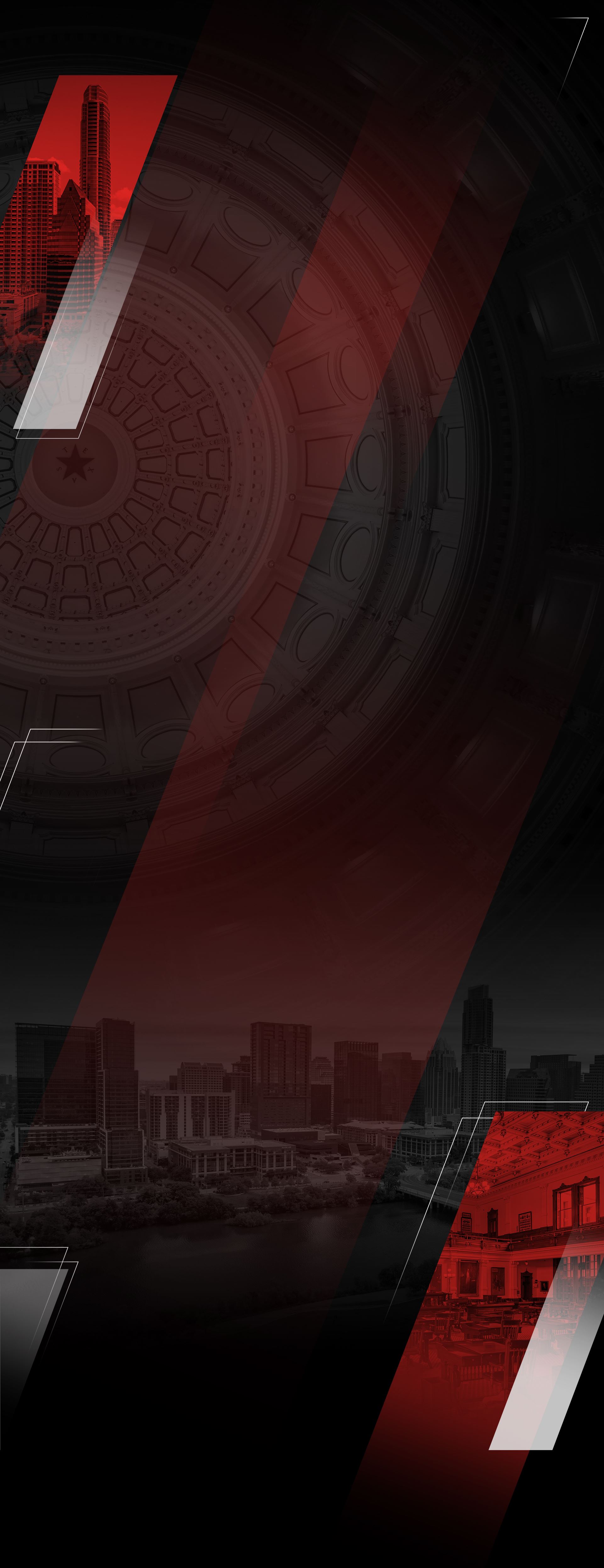

DWI Defense Lawyer in San Marcos
Fighting Driving While Intoxicated Charges in Texas
Being convicted of, or even merely charged with, a DWI can severely impact your life. Immediately after your arrest, you face a driver's license suspension, making it difficult for you to take care of daily tasks. If you are found guilty of the offense, in addition to losing driving privileges, you face a fine and/or incarceration. Because the effects of being charged with driving while intoxicated are so severe, it is essential that you go into your case with an experienced and knowledgeable DWI defense lawyer in San Marcos on your side. With aggressive counsel, you increase your chances of minimizing or avoiding harsh penalties.
Driving while intoxicated matters are highly technical and involve a great deal of science. Prosecutors use evidence such as field sobriety and chemical test results to attempt to prove guilt. At Smith & Vinson Law Firm, we know that these measurements are not always accurate, and their performance may be affected by things other than drug or alcohol consumption. Our San Marcos DWI lawyers will examine every detail of your situation to determine what defenses to raise and how to most effectively present your case to seek a favorable result on your behalf.
For the bold and fearless defense you need, schedule a free consultation with our San Marcos DWI lawyers by calling (512) 359-3743.
How Serious Is a DWI in Texas?
A DWI charge in Texas is a serious matter. Even before your case concludes, you may face consequences that affect your family, education, and career. A conviction can result in a permanent criminal record, impacting employment opportunities and more. Many individuals are unaware that a DWI conviction can also lead to substantial increases in insurance premiums, further adding to the financial burden.
Understanding the nuances of Texas law is crucial. In addition to the immediate penalties, there may be ancillary consequences such as community service, mandated alcohol education programs, and the installation of an ignition interlock device on your vehicle. Each of these penalties serves to limit personal and professional freedoms, making it all the more important to approach your defense with a comprehensive strategy assisted by a skilled DWI attorney in San Marcos.
Texas Penal Code § 49.04 defines DWI as operating a vehicle in a public place while intoxicated by alcohol and/or controlled substances. Intoxication means:
- The driver's normal mental or physical faculties were impaired by alcohol and/or drugs, rendering them incapable of safely driving; or
- The driver had a blood or breath alcohol concentration of 0.08 or more.
Generally, first and second DWI violations are misdemeanors, with punishments varying depending on the facts of the case.
Understanding DWI Checkpoints in San Marcos
DWI checkpoints are established as sobriety checkpoints where law enforcement can stop vehicles to check drivers for signs of intoxication. Although Texas is known for its level of scrutiny regarding DWI checkpoints, they remain a tool used by police departments, including in San Marcos, especially during holidays or events when impaired driving incidents tend to rise. Understanding your rights and the proper procedures at these checkpoints is paramount to safeguarding your legal interests.
When approaching a checkpoint, drivers should know that officers must have reasonable suspicion or observable signs of intoxication to conduct further testing or searches. As a driver, you are required to stop and provide your identification and requested documents, but you retain the right to remain silent regarding any questions about your activities. If you believe your rights were infringed upon at a checkpoint, contacting a knowledgeable DWI lawyer San Marcos can help explore potential defenses and examine the legality of the checkpoint itself.
Penalties for Texas DWI
- First Offense (Class B Misdemeanor):
- 72 hours to 180 days in jail
- Minimum of 6 days in jail if the driver had an open container of alcohol near them
- Up to $2,000 in fines
- 90 days to 1 year of driver's license suspension
- Alcohol Concentration of 0.15 or More (Class A Misdemeanor):
- Up to 1 year in jail
- Up to $4,000 in fines
- Second Offense (Class A Misdemeanor):
- 30 days to 1 year in jail
- Up to $4,000 in fines
- 180 days to 2 years of driver's license suspension
Whether this is your first or second violation, handling your case without legal help could be costly. Our DWI attorneys in San Marcos, TX recognize how a criminal charge and conviction can affect you. That is why we will aggressively defend you at each stage of your case.
Engaging a lawyer early in the process provides the opportunity to explore potential defenses, such as questioning the validity of the sobriety tests or challenging the stop's legality. An effective lawyer can negotiate lesser penalties or even dismissal of charges based on procedural errors or mitigating evidence. Understanding the full spectrum of defense possibilities is crucial for a favorable outcome.
Can a DWI Be Charged as a Felony in Texas?
Driving while intoxicated is not only charged as a misdemeanor. In some cases, the offense is a felony, even if it is the first or second time someone has been accused of the crime.
Committing a DWI with a minor under 15 years of age in the vehicle is a state jail felony, punishable by:
- 180 days to 2 years of incarceration
- Up to $10,000 in fines
Committing a third DWI violation is a third-degree felony, punishable by:
- 2 to 10 years of incarceration and/or
- Up to $10,000 in fines
Causing serious bodily injury to another (intoxication assault) is a third-degree felony, punishable by:
- 2 to 10 years of incarceration and/or
- Up to $10,000 in fines
Causing death to another (intoxication manslaughter) is a second-degree felony, punishable by:
- 2 to 20 years of incarceration
- Up to $10,000 in fines
Felonies are more serious crimes than misdemeanors and can have greater lasting effects. If you are facing a felony charge, reach out to our DWI lawyers in San Marcos immediately. Building a strong defense requires thorough preparation. Our team is ready to put in the time and resources to fight the allegations against you.
Understanding the distinction between misdemeanor and felony DWIs is crucial because felony convictions can lead to longer sentences, higher fines, and a permanent stain on your criminal record. Felony charges necessitate an even more robust defense strategy, taking into account all aspects of the arrest and evidence.
Why Hire a Local San Marcos DWI Lawyer
Selecting a local DWI attorney offers numerous advantages, particularly when dealing with San Marcos-specific regulations and practices. A lawyer based in San Marcos is more likely to be acquainted with local law enforcement's practices, providing insight into typical prosecutorial strategies, negotiation patterns, and courtroom procedures. This localized knowledge ensures that your defense strategy is finely tuned to the specific nuances of your jurisdiction, making it more effective.
Beyond legal nuances, local attorneys often have established relationships with the courts, prosecutors, and local officials, offering your defense a strategic edge. Furthermore, our proximity ensures that we are easily accessible for meetings and consultations, providing more personalized attention to your legal needs. At Smith & Vinson Law Firm, we're dedicated to fighting for the best possible outcome for our clients in San Marcos by leveraging our deep connections and knowledge of the local legal landscape.
DWI vs. DUI in Texas
Often, the terms DWI and DUI are used interchangeably, but in Texas, they are actually different offenses. DUI stands for "driving under the influence of alcohol by a minor." It applies to people under 21 years of age who consume any amount of alcohol and get behind the wheel.
The 0.08 alcohol concentration limit does not apply in DUI cases. A minor can be charged if they have any amount of alcohol in their system while driving. This is true even if they were not affected by the substance.
Texas takes underage drinking and driving seriously, implementing a zero-tolerance policy to deter minors from engaging in such behavior. The state views any trace of alcohol in a minor’s system as an offense, reflecting its commitment to protect public safety and prevent future offenses.
DUI Under 17 Years of Age
First Offense (Class C Misdemeanor):
- Up to $500 in fines
- 20 to 40 hours of community service
- 60 to 180 days of driver's license suspension
- Completion of an Alcohol Awareness course
Second Offense (Class C Misdemeanor):
- Up to $500 in fines
- 40 to 60 hours of community service
- 120 days to 2 years of driver's license suspension
- Completion of an Alcohol Awareness course
Third Offense (Delinquent Conduct by a Minor):
- Up to $500 in fines
- 40 to 60 hours of community service
- 180 days to 2 years of driver's license suspension
DUI Between 17 and 20 Years of Age
First Offense (Class B Misdemeanor):
- 72 hours to 180 days in jail
- Up to $500 in fines
- 1 year of driver's license suspension
Second Offense (Class A Misdemeanor):
- 30 days to 1 year in jail
- Up to $4,000 in fines
- 180 days to 18 months of driver's license suspension
Third or Subsequent Offense (Third-Degree Felony):
- 2 to 10 years of incarceration
- Up to $10,000 in fines
- 180 days to 2 years of driver's license suspension
While Texas's DUI law applies to minors operating a vehicle with any amount of alcohol in their system, a person under 21 years of age can be charged with a DWI if they had an alcohol concentration of 0.08 or more. In such cases, they face the same penalties as a person 21 years of age or older.
It’s vital for young drivers to understand these laws and their implications. Lack of awareness or misinterpretation can lead to serious legal consequences impacting future employment, education, and personal opportunities. Educating minors on these aspects is an essential step in prevention.
Probable Cause in a Texas DWI Case
In a DWI matter, police officers cannot simply pull someone over because they have a hunch that the person is intoxicated while driving. They must have probable cause. That means there must be some legally justifiable reason for stopping the driver—for instance, the person was speeding or ran a red light.
Officers also need probable cause to arrest someone on suspicion of driving while intoxicated. Often, this is established by observing the driver's physical behaviors or characteristics, such as having slurred speech or performing poorly on field sobriety tests.
In some DWI cases, probable cause plays an important role. Showing that the officer did not have a reason to stop or arrest the defendant can result in evidence being deemed inadmissible and weakening the prosecutor's case.
At Smith & Vinson Law Firm, we will review and analyze everything that happened, from your traffic stop to charges being filed against you. By listening to your side of the story, our San Marcos DWI attorneys can better understand what happened and build a defense tailored for you.
Establishing a lack of probable cause is one of the most effective defenses in DWI charges. It involves a meticulous examination of the scenario leading up to the arrest. Dashcam footage, witness testimony, and officer reports are critical in assessing these claims. A well-prepared defense attorney will strategically focus on these elements to argue against the legitimacy of the stop and subsequent arrest.
Get Started on Your DWI Defense in San Marcos, TX
Whether you have been charged with a misdemeanor or felony DWI in Texas, it is essential to retain the services of a team that knows how to counter these allegations. Smith & Vinson Law Firm consists of former prosecutors familiar with how the other sides build cases. We can use this insight to your advantage as we fight for you.
Choosing Smith & Vinson Law Firm means employing a team dedicated to personalized defense and aggressive representation. Understanding both the defense and prosecutorial strategies equips us with unique insights into potential weaknesses in the state's case. Our client-focused approach ensures that each plan is customized to the specific circumstances of your DWI charge, maximizing the potential for a positive outcome.
Frequently Asked Questions About DWI in San Marcos
What Should I Do If I Am Pulled Over for a DWI in San Marcos?
If you find yourself being pulled over under suspicion of DWI in San Marcos, it is crucial to remain calm and collected. First, slow down and pull over to a safe area as soon as possible. Always have your driver’s license, registration, and proof of insurance ready. Keep your hands visible on the steering wheel and be polite to the officer. While you are legally required to provide the requested documents, you are not obligated to answer questions that may incriminate you, such as whether you have been drinking. Politely inform the officer that you choose to decline answering questions. Consider telling the officer that you would like to consult with an attorney as soon as possible. If you are arrested, remember that anything you say may be used against you. Ask to speak with a DWI lawyer immediately to discuss your legal options.
How Can a Lawyer Help Me Contest a DWI Charge in San Marcos?
Hiring a skilled DWI attorney is one of the most effective steps you can take if charged with a DWI in San Marcos. A lawyer will evaluate all aspects of your arrest, including the legality of the traffic stop, the accuracy of field sobriety and chemical tests, and any procedural discrepancies. By challenging the evidence, your lawyer might find grounds for dismissal or reduction of charges. Additionally, San Marcos DWI lawyers have the negotiation skills to arrange plea deals or alternative sentences, such as participating in alcohol education programs, which can mitigate the consequences of a conviction. An attorney will also represent you at DMV hearings regarding your driver's license suspension, trying to prevent or shorten the suspension period. With in-depth knowledge of Texas DWI law and courtroom procedures, your attorney can craft a comprehensive defense strategy aimed at achieving the best possible outcome.
What Are the Long-Term Consequences of a DWI Conviction in San Marcos?
A DWI conviction extends beyond immediate penalties such as fines or jail time. It may result in significant long-term consequences that can impact various aspects of your life. A criminal record from a DWI conviction can affect your employment opportunities, as many employers conduct background checks and may be hesitant to hire someone with a conviction. It can also impact current employment if your job involves driving. Furthermore, your insurance premiums are likely to increase significantly after a DWI, resulting in long-term financial strain. A DWI conviction can also affect your personal life, potentially leading to restricted travel opportunities, both nationally and internationally, depending on certain countries' entry policies regarding criminal records. Given these potential repercussions, it is crucial to fight a DWI charge with a solid legal defense to minimize its impact on your future.
What Are the Differences Between DWI & DUI in Texas?
In Texas, DWI (Driving While Intoxicated) and DUI (Driving Under the Influence) are distinct offenses that differ mainly by the age of the offender and the level of intoxication. DWI is a charge applied to adults (21 or older) who operate a vehicle while impaired by alcohol or drugs, with a BAC of 0.08% or higher. On the other hand, DUI is specific to minors (under 21) who drive with any detectable level of alcohol in their system, not requiring a BAC of 0.08% or more. The consequences also vary significantly; while a DWI involves potential penalties like hefty fines, jail time, and license suspension, a DUI for minors often results in fines, alcohol education programs, and community service. Understanding these differences is essential for properly addressing either charge in court.
How Are Chemical Test Results Challenged in a DWI Case?
Chemical test results, such as those from breath, blood, or urine tests, play a crucial role in DWI cases but are not infallible. An experienced DWI lawyer can challenge these results on several fronts. One common issue involves questioning the accuracy and maintenance of the testing device. If the device was not properly maintained or calibrated according to state protocols, it could yield incorrect results. Additionally, the timing of the test can be a factor; if taken too long after driving, it may not accurately reflect the driver's condition at the time of the stop. Procedural errors, such as an officer failing to observe the subject for a required observation period before testing, can also be grounds for contesting the results. Your defense attorney will examine these and other factors to dispute the reliability of chemical test outcomes and advocate for a favorable resolution in your DWI case.
Contact our San Marcos DWI lawyers today by calling (512) 359-3743. Your initial consultation is free.

Our Client Reviews
Earning Our Reputation by Protecting Yours
-
Smith and Vinson are absolutely incredible! They go above and beyond to help their clients and have a track record of success in getting cases dismissed. Their aggressive approach and unwavering dedication make them stand out from the rest.- Linda W.
-
What sets this firm apart is their unwavering dedication to their clients. They listen attentively, provide clear guidance, and approach every case with the utmost diligence. Their attention to detail is truly impressive, and they leave no stone unturned.- Former Client
-
When in battle you need people by your side who are fierce enough to face the opposition with you. Brad and Jarod far exceeded my expectations with their passion for winning and attention to detail.- Nikki C.
-
After the Jury was selected, the first witness was called to the stand, and Brad and Jarrod imploded the State's case. Moments later, the case was dismissed. I couldn't be any more thankful for Smith & Vinson.- Former Client

A Proven Track Record
Check Out Our Recent Case Results
-
Not Guilty 2nd DWI
911 caller reported a major rollover, single car accident. EMS and fire arrived on scene. They had to break the window to get our client out of the car. He said he had swerved to miss a deer and had been up close to 18 hours before the crash. Police later arrived on scene, spoke to our client and he admitted to coming from a bar and drinking 2 martinis.
-
Not Guilty 2nd DWI
Our client was pulled over for a traffic violation. Officer smelled alcohol, client admitted to consuming a few drinks. Officer also noted slurred speech and bloodshot eyes. Client performed the SFST’s (roadside tests). Officer said he failed all 3, eye test, walk and turn and one-leg stand. Officer placed client under arrest and asked him for a sample of breath and/or blood. Client refused. Officer did not get a blood warrant.
-
Case Dismissed 2nd DWI
Our client was involved in a vehicle accident in La Grange where she was ejected from the vehicle and had to stay in the hospital. There was alcohol in the car, and she had prior DWIs. The ethanol levels in her blood came back at a .13 so she was charged with Driving While Intoxicated. This client was unaware that she was charged after she left the hospital which resulted in the charge of Bail Jumping. However she maintained that she had only an 8% functioning liver due and upon researching her medical hist
-
Deferred Adjudication Aggravated Assault & Tampering with Evidence
Our client was involved in a verbal dispute that turned into an altercation where a firearm was discharged into the ground. The round ricocheted and grazed a party to the dispute. Our client was facing multiple felony convictions and a prison sentence.
-
Deferred Adjudication Aggravated Assault Family Violence w/ Serious Bodily Injury
Our client was involved in a domestic altercation that resulted in one of the parties sustaining a very serious life -altering injury that required serious medical intervention. We took the case and approached our defense with heavy strong willed negotiations with the State.
-
Rejected Pre-Indictment Aggravated Assault Strangulation/Impeding Airway Investigation
















